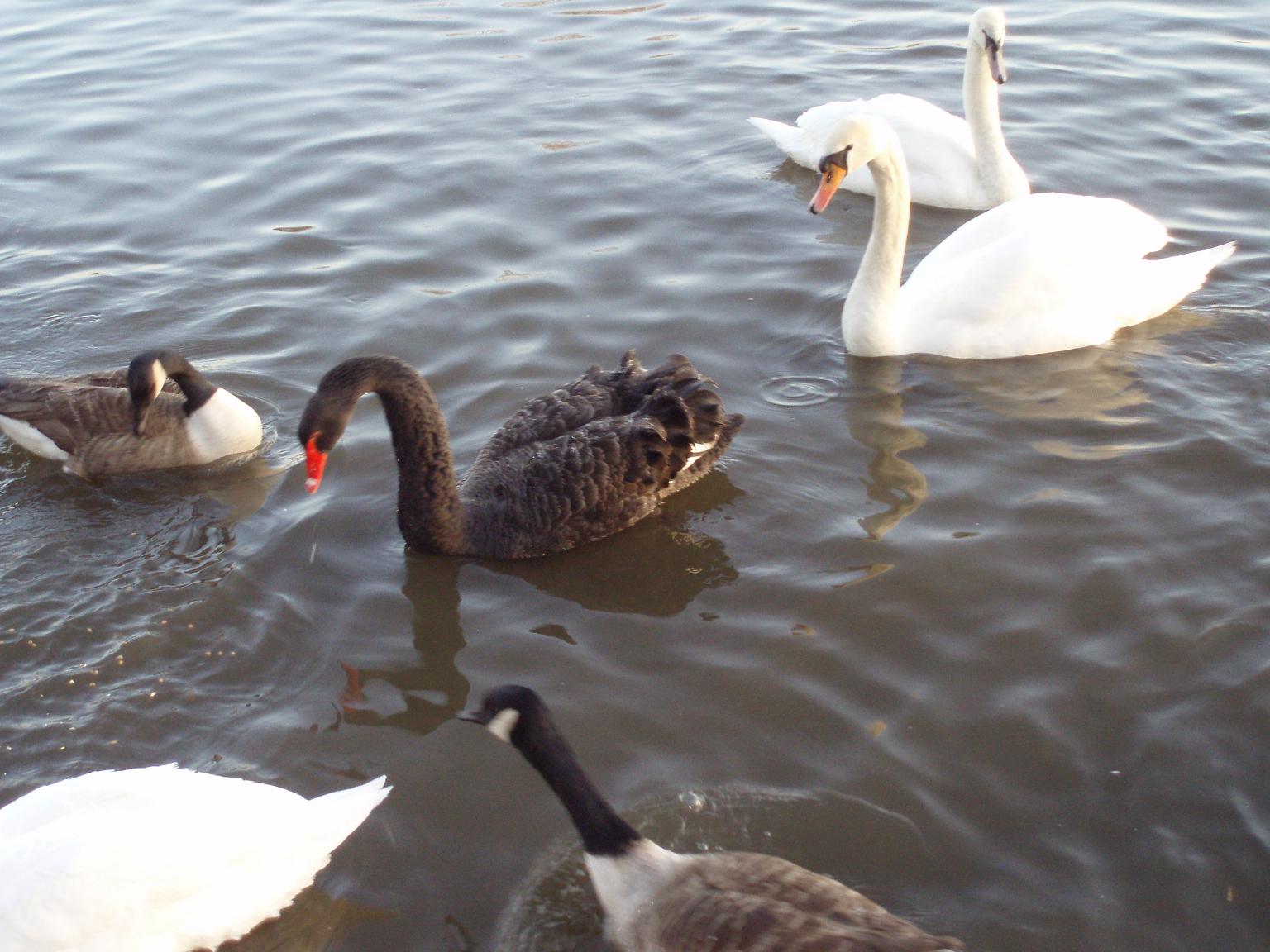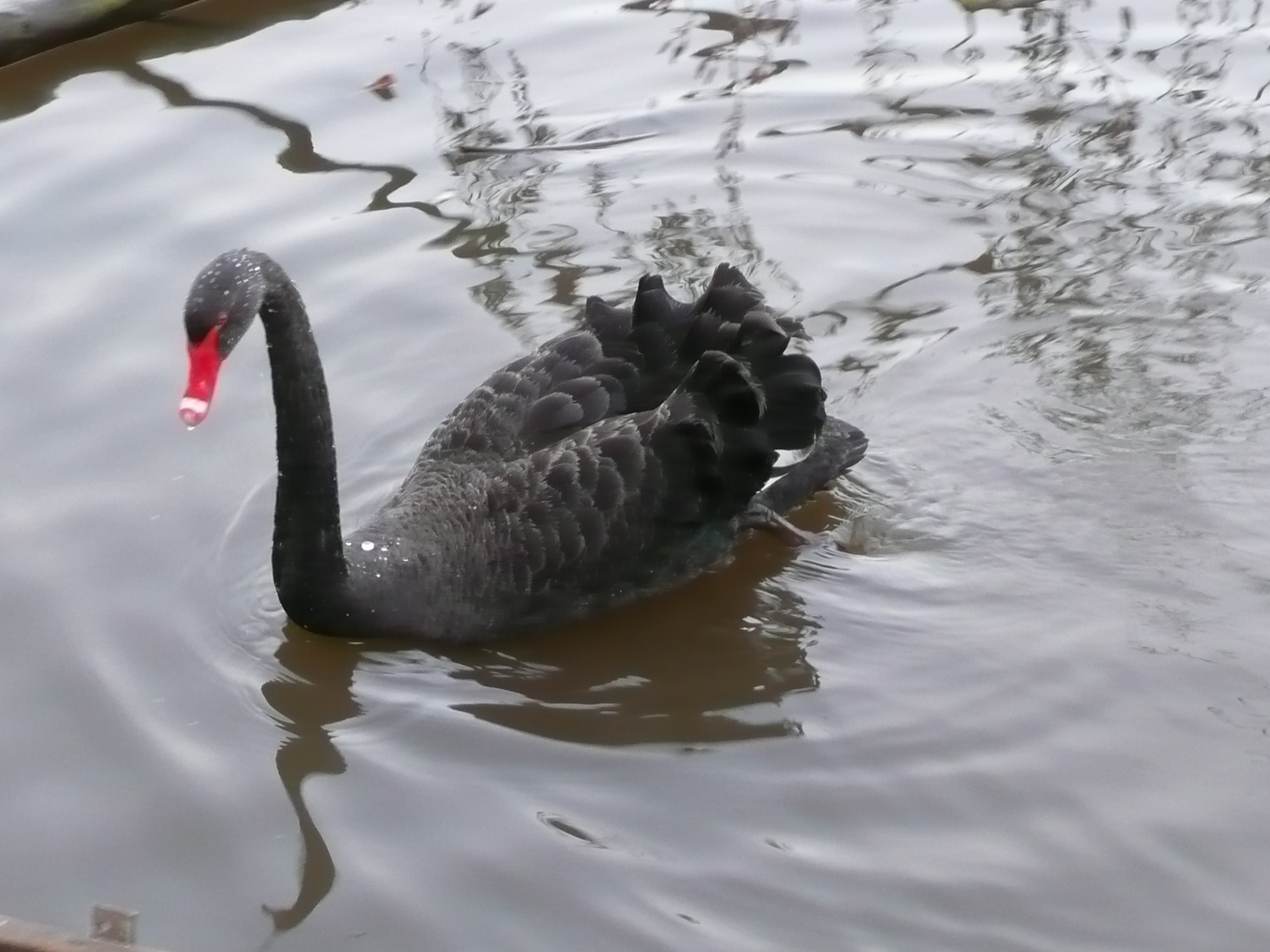Spotted at the Pond last Sunday and photographed yesterday.
Vicki Jull writes:
“Several years ago we had a black swan stay on the pond for about a year, establishing a love/hate relationship with the resident mute swan pair. The female mute would pick on the black swan but when other mutes invaded their territory it was the three musketeers together against the intruders!
We have had other visits from a black swan at the pond, on one occasion there was even a pair for a couple of days. Could it be the same one coming back again and again?”
From the RSPB Ask An Expert:
“Sightings of black swans have become reasonably common. They could be found on almost any water body. They have similar habitat requirements to mute swans and are often found in the same areas.
Black swans are native to Australia and are the state bird of Western Australia. They were brought to the UK as ornamental birds like peacocks and golden pheasants. Like many other captive birds, they occasionally find their way out into the wild.
They are similar in size to the closely related mute swan. They appear all black when swimming but they have white primary wing feathers, which can be seen in flight. The bill is red with a broad white band on the tip.
Black swans were also introduced to New Zealand where a feral breeding population has become well established. The New Zealand population increased dramatically because they faced very little competition or predation.
There have been occasional reports of successful breeding attempts in the UK but they have not become established. They face competition from our native swans so it is unlikely they could become as well established here as they have in New Zealand.”
Picture credits: Vicki Jull (top two) and David Pottinger.




I never knew that about Black Swans! Now I know why I’ve seen so many around New Zealand! I’ll appreciate them a little more in the future – expect when they are heading for my ankles at high speed!
Greeting from Lafayette,LA USA!!!
Nice pics!
i really like black swans and i am researhing them at my school merrlill in des.moines in science class.
Keauna, sorry for taking so long to put up your comment, there was a hitch from our side! Many thanks for the interest.
Australian black swans had colonized New Zealand on their own account before white settlement. They were hunted to extinction during the 19th century. Since then there have been new colonizations, both by human introduction and by occasional birds flying over from Australia. There is not now so much hunting of swans, so their numbers are increasing.
Some interesting info there Peter,I wonder what has happened to the black swan at the pond, as it is not there at the moment.
I have never seen it in flight at the pond either.